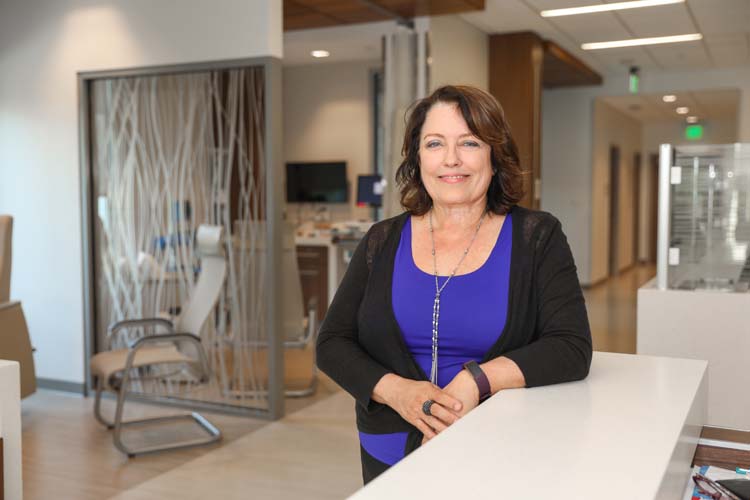
Delivering bad news is something no doctor enjoys, but it is part of the job for Scully-Welsh medical hematologist and oncologist Dr. Suzanne Kirby.
Just last August, for example, she had to tell an affable and easy-going patient, whose main complaint at the time was that he was feeling “tired,” that he needed a lot more than a nap.
She informed him that he had leukemia, specifically “myelodysplastic syndrome” or MDS, and “acute myeloid leukemia,” and needed extensive treatment.
Given that diagnosis, the term “bad news” is something of an understatement. According to the American Society of Clinical Oncology, the current five-year survival rate for acute myeloid leukemia patients in only 27 percent.
Leukemia, in the words of Medical News Today, “is a cancer of the blood or bone marrow” that usually affects white blood cells and is most likely to afflict people over the age of 55.
AML is a particularly fast-growing form of blood cancer in which “the body makes unhealthy blood-forming cells that don’t develop properly,” according to bethematch.org and the National Bone Marrow Donor Program.
The diseased cells grow very rapidly and prevent the bone marrow from making normal red blood cells, white blood cells and platelets.
The result is the body can’t fight infections and it can’t stop bleeding.
The diagnosis was daunting not just to the patient but to the doctor, too, since Kirby knew that “we had not treated an acute leukemia patient at this institution before.”
But Kirby was up to the challenge, with a couple of aces up her sleeve in the form of newly approved drugs and sophisticated genetic testing.
“There have been a number of new drugs approved for acute leukemia this year, including one named Vyxeos. We haven’t had a lot of new drugs for acute leukemia in a long time,” so the new medicines are “exciting.”
“The neat thing about the Vyxeos,” Kirby continues, “is they’ve taken two drugs we’ve used for many, many years – Daunorubicin and Cytarabine – for acute leukemia induction therapy, which is where you try to really blast them to get rid of all those leukemia cells in the marrow,” and used them in a new way.
“With Vyxeos, they coated those same drugs in a lipid membrane so the drug is inside of a lipid bubble,” which causes the medicine to migrate to places “where there are a lot of other lipids … like in your bone marrow.”
In other words, the drug is attracted to the very area that needs it.
Vyxeos has been approved specifically for patients with myelodysplastic AML so, Kirby says, this particular patient “is a perfect candidate to get it.”
But Kirby admits Vyxeos therapy is no picnic.
This particular drug combination, she explains, has “a lot of toxicity” and will “wipe out your blood counts” and may cause the lining of the mouth and the intestines to get raw and extremely uncomfortable and can also become a source of infections. People also sometimes lose their hair on this combo and, frankly, they often feel “terrible.”
Meanwhile, on the genetics side, using what Kirby calls “some very sensitive genetic tests and next generation sequencing,” she was able to spot a specific gene mutation in her patient – a critical piece of information, as it happens, since the FDA just approved another new drug called “Idhifa” to treat this particular mutation.
Despite those successes, there’s still a long road ahead for Kirby’s patient.
With those drugs, the patient’s AML is now in remission, which means he can begin the bone marrow transplant process with the hope new marrow will someday begin producing healthy, mature blood cells.
But both patient and doctor are aware that, as Kirby says, “any leukemia in an adult is always tough. The long-term prognosis – if you just went by numbers – is probably about 25 percent. [However], as well as he’s doing getting into remission, he might be up closer to the 50 percent if we do well with the right donor.”
As the patient prepares for what is likely a three-month transplant process, Kirby probably wishes she could clone his outlook to share with future patients.
With a combination of resolve and quiet understatement, he says, “I’m a person who likes challenges. I’ve always kind of looked forward to challenges. And this is one of the big ones.”
Dr. Suzanne Kirby is with the Scully-Welsh Cancer Center and has offices at 3555 10th Court in Vero Beach. The phone number is 772-226-4810.



